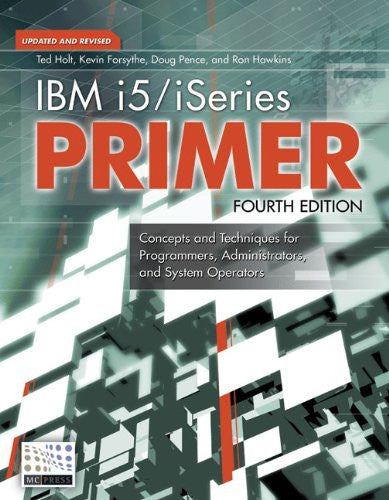Recently, I wrote about the open source movement and how it might affect small businesses. (See “Open Source Business Applications, Anyone?” March 2000, MC.) Since that time, I have followed the open source movement, and, because I believe in the concept, I will continue to follow it. This month, I revisit the topic of open source with more news about opensource for the AS/400, as well as new developments in the corporate world.
Since March, some of the AS/400 open source advocates about which I spoke have organized themselves behind a Web site, www.opensource400.org, and have named their package WyattERP.
I recently visited the Web site and found progress has been made. A menuing system is ready to go, and cross-application support, transaction processing, general ledger, accounts receivable, and accounts payable are at least partially finished. The inventory control and order entry and billing modules will soon be ready.
I contacted James Kilgore, a consultant who donated the initial code and heads up the project, to find out how WyattERP is progressing. According to Mr. Kilgore, 50 agricultural co-ops in Indiana are in the process of migrating to WyattERP, an ASP in Arizona is preparing to offer WyattERP to clients, and a cabinet manufacturer in Texas is installing WyattERP. Other consultants are either considering WyattERP, planning to install it, or waiting until other needed modules are available.
I also spoke with Joe Pluta about the status of Pluta Brothers Design’s AS/400- based open source projects. Joe reports that his company’s Java utility that converts spool files to PDF is widely being used and that it plans to expand the open source version into a commercial version. Of course, other software developers will be able to develop commercial versions of their own. There is also some interest in the open source revitalization tool Pluta Brothers Design is developing, which enables green-screen applications to run in a Web environment. For more information, visit the company’s Web site at www.java400.net.
Who Else?
Several huge corporations—including IBM—are at least toying with open source if not embracing it. TechTalk, on page 126 includes a report from Alex Garrison about JTOpen,
WyattERP
IBM’s open source version of the Java Toolbox for AS/400. Alex, one of the non-IBMers on the committee that oversees JTOpen, points out several advantages the open source version of JTOpen has over the licensed product version and responds to some objections raised by skeptics.
On July 19, Sun Microsystems announced the release of the source code for its StarOffice Suite, the establishment of a controlling Web site named OpenOffice.org, and the creation of the OpenOffice.org Foundation. The source code is to be released on October 13, and many Linux vendors have already signed agreements to redistribute StarOffice. Sun will continue to offer commercial versions of the product that are developed from the open source code.
OpenOffice.org will offer more than StarOffice. You’ll also be able to download APIs, XML-based file formats, and filters for converting documents from other formats.
(Do you suppose Sun is trying to make it easy for people who use Microsoft products to convert to StarOffice?) For more information, visit www.openoffice.org and www.sun.com/staroffice/opensource.
Open source is very important to Oracle. According to Bob Shimp of Oracle’s product marketing department, this well-known database management system (DBMS) and applications vendor has ported its software to Linux and has integrated the Apache Web server into its products. During July, developers downloaded 283,000 copies of the Oracle DBMS for Linux from www.oracle.com, and, during the first week of August, another 100,000 copies were downloaded. Oracle hasn’t released any source code yet, but it is actively pursuing the possibility. Oracle recently featured open source advocate Eric Raymond (author of The Cathedral & the Bazaar) as a guest on its E-Business Network (www.oracle.com/tellmemore/?266275).
Inprise/Borland, the folks who gave us Turbo Pascal, Borland C++, and other notable compilers, announced on July 25 the availability of the source code of Interbase 6.0 DBMS. Interbase is a full-featured, programmable, SQL-based relational DBMS. Dale Fuller, interim president and Chief Executive Officer of Inprise/Borland, expects this move to create “an explosion of open source applications.” You can download the source code and binary versions for Linux, Windows, and Solaris at www.inprise.com/interbase/.
New Directions
There are two trends worth noting. First, open source development is taking place in the business world. Until now, most open source projects were system software projects developed and used largely in university environments. As Joe Pluta points out: Where are you going to find people who want to program computers in their spare time? University students thrive on such projects.
However, university students don’t know anything about how businesses operate. The people who know how to develop business applications, already have more than enough to do, and not many people are going to write accounts receivable programs after supper. Some people are preparing to migrate to open source business applications, but don’t look for open source to be as prevalent in the office as it is among ISPs.
Second, open source, which began as a grassroots movement, is now a component of boardroom strategy. More and more hardware and software vendors are supporting Linux. (This includes IBM, which will support Linux on all its platforms, including the AS/400. See “IBM Wants You to Love Linux” in this issue’s Significa section.)
If their customers buy into Linux, and chances are good they will, businesses will run open source software, especially office products like word processors and spreadsheets.

















 Business users want new applications now. Market and regulatory pressures require faster application updates and delivery into production. Your IBM i developers may be approaching retirement, and you see no sure way to fill their positions with experienced developers. In addition, you may be caught between maintaining your existing applications and the uncertainty of moving to something new.
Business users want new applications now. Market and regulatory pressures require faster application updates and delivery into production. Your IBM i developers may be approaching retirement, and you see no sure way to fill their positions with experienced developers. In addition, you may be caught between maintaining your existing applications and the uncertainty of moving to something new. IT managers hoping to find new IBM i talent are discovering that the pool of experienced RPG programmers and operators or administrators with intimate knowledge of the operating system and the applications that run on it is small. This begs the question: How will you manage the platform that supports such a big part of your business? This guide offers strategies and software suggestions to help you plan IT staffing and resources and smooth the transition after your AS/400 talent retires. Read on to learn:
IT managers hoping to find new IBM i talent are discovering that the pool of experienced RPG programmers and operators or administrators with intimate knowledge of the operating system and the applications that run on it is small. This begs the question: How will you manage the platform that supports such a big part of your business? This guide offers strategies and software suggestions to help you plan IT staffing and resources and smooth the transition after your AS/400 talent retires. Read on to learn:
LATEST COMMENTS
MC Press Online